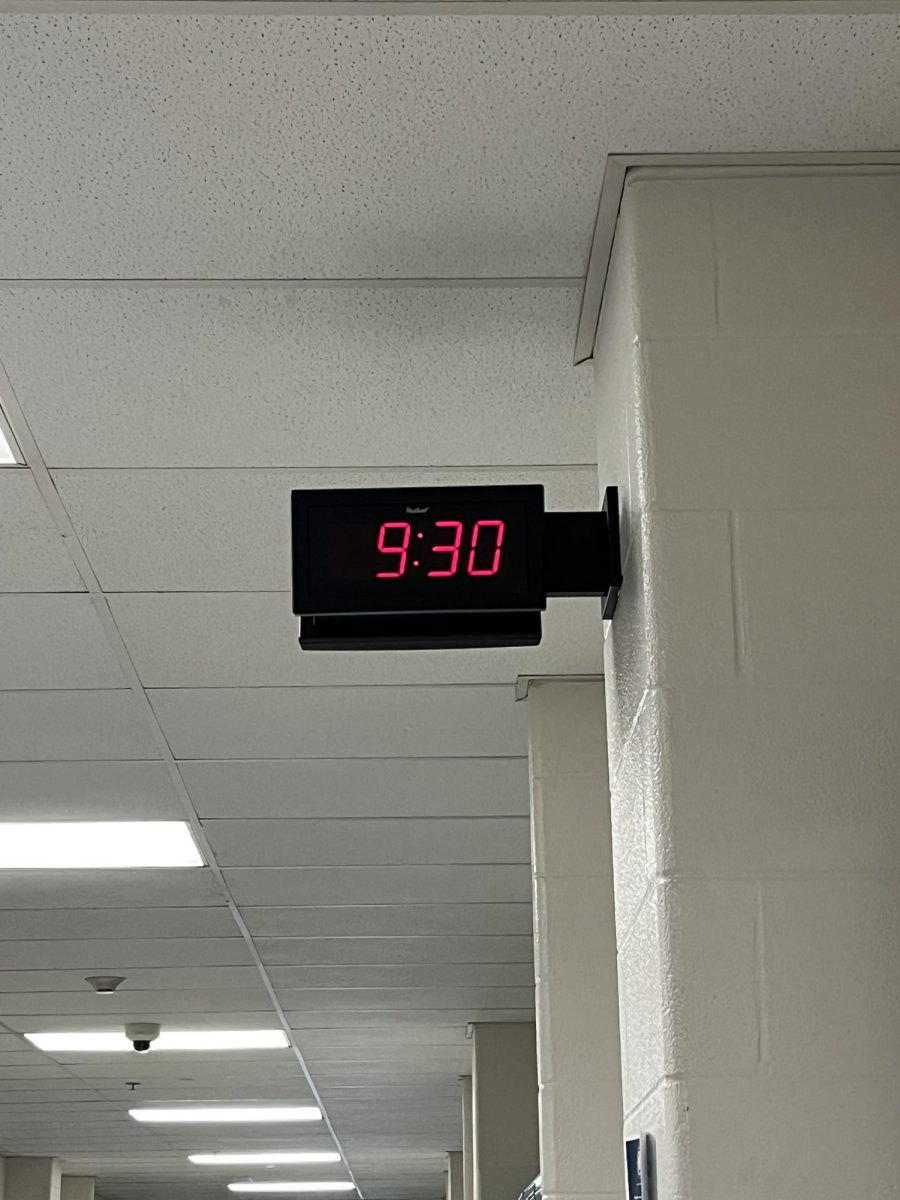“Bulldog families, you’re receiving this email because your student accumulated 10 or more unexcused tardies to school in February. Beginning the week of March 11, students who are tardy (unexcused) to school 3 or more times will be assigned mandatory after school detention on Wednesdays.”
On Monday, March 4, students were informed of a new policy concerning the consequences of being tardy after numerous emails were sent on the issue. The new policy states that if a student is late three or more times during their first or fifth block classes, they will meet with an assistant principal who will assign a mandatory after-school detention. These detentions will take place on Wednesdays at the close of the school day, and transportation will be provided to accommodate students who are unable to travel to and from the building independently.
“There’s a direct link towards the students that are missing either first or fifth block consistently and getting schoolwork done in those classes,” Principal Dr. Timothy Flynn said. “So during that [detention] time, this will be an opportunity to complete the missing schoolwork.”
The idea to reduce tardiness was raised after a concerning amount of students were missing class. With Standards of Learning (SOLs) and other major testing coming up, teachers and administrators agreed that the issue needed to be addressed.
“There’s actually 120 students that have been absent more than three times just in the last couple weeks,” Dr. Flynn said.
Schools are designed to prepare students for life after graduation. One such goal of all school systems is teaching punctuality. High schools in this county start instruction at 9:30 a.m., a time significantly later than many other districts across the country, which, arguably, gives students a generous amount of time to sleep and prepare for school.
“We want to give the impression that school is to prepare students for real life,” history teacher Mr. William Slook said. “You can’t be showing up to business meetings late, it’s an easy way to get fired.”
While everyone agrees that punctuality is an important part of school, teachers especially feel the sting when students are late to class. Instructors witness firsthand what students miss when they arrive late, recognizing the impact that only a few minutes can have on both the delivery of a lesson and on the student’s ability to learn.
“I do fun stuff in the beginning [of class], and if you’re not recognizing that class is a fun place to go to because you’re missing those moments, it’s only going to perpetuate the cycle where you’re not coming to class,” Mr. Slook said.
While Stone Bridge is the only school in the area to implement this specific rule, other schools have even stricter policies regarding tardiness.
“Some schools assign the discipline when you walk in the door,” Dr. Flynn said. “ So if you’re late, that minute you walk in the door you’re assigned that discipline.”
Being on time can be a challenge for those with extensive morning routines or problems waking up on time. Instead of struggling under the new policy, the school believes that this rule will force students to get into better habits before the first bell rings.
“Set alarms, so that you can be successful,” Dr. Flynn said. “Your morning routine needs to include using technology to allow you to get the things that you need at stores so that you can be on time for school.”
Being that this new policy is still in its early stages, it is unknown whether it has had the intended effect on tardiness so far. However, though the current impact may be unknown, with absenteeism present in a whopping 17% of students, it is clear that something needed to be done.
“You must be present to win,” Dr. Flynn said. “So, if you want to win academically, you have to be in the classroom.”




